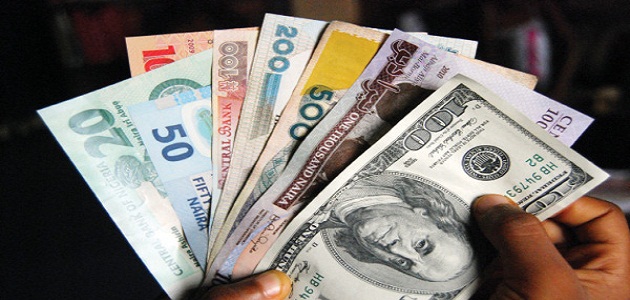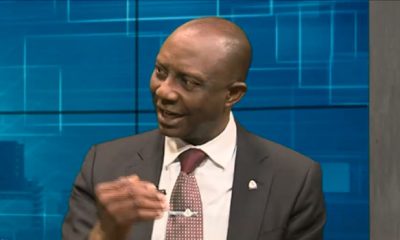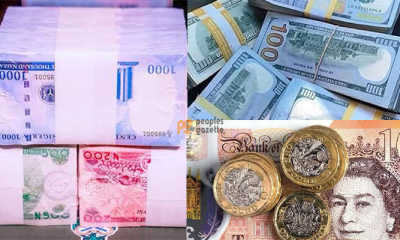By Odunewu Segun
The naira picked N5 against the dollar at the weekend, selling for N395 to the US dollar at the parallel market as against the N400 it sold for last week, while it depreciated further to N318.91 down from N315.06 at the inter-bank market.
Meanwhile, only two banks have complied with the directives of the Central Bank of Nigeria which instructed banks to sell forex to Bureau de Change operators in the country.
According to President of Association of Bureau de Change Operators, Alhaji Aminu Gwadebe, only two banks have indicated interest to sell the proceeds of international money transfer. “They said they would sell to us at the inter-bank rate plus one per cent. More banks have indicated interest to comply this week,” he said.
On the volume sold to them, he said it was $15,000 per bid maximum, adding that “the bigger banks were unable to give because of logistics. That would be on Monday also for collection.”
ALSO SEE: Naira dips to 378/dollar as liquidity crisis worsens
The Naira has dropped steadily on the black market last week after opening the week at 381. Traders blamed the situation on high dollar demand from holiday makers travelling overseas for vacation.
Recall that CBN told international money transfer operators to pay dollar proceeds from customer transfers into local commercial banks in naira, while selling the dollars themselves to bureaux de change outlets.
The bank hopes the move will help narrow the yawning gap between the official and black market rates and boost dollar liquidity, traders say. It had hoped that the need for a black market would be erased by scrapping the dollar peg and thereby attracting foreign investment.
But dollar drought persists and has curbed interbank activity, despite the central bank hiking interest rates last week and mopping up naira liquidity to shore up debt yields.
Some past suppliers of dollars, including oil firms, are now selling some of their hard currency directly to petrol importers under an arrangement with the government, traders say.

 Football2 days ago
Football2 days ago
 Business1 week ago
Business1 week ago
 Business1 week ago
Business1 week ago
 Education1 week ago
Education1 week ago
 Crime1 week ago
Crime1 week ago
 Covid-191 week ago
Covid-191 week ago
 Latest5 days ago
Latest5 days ago
 Business1 week ago
Business1 week ago











